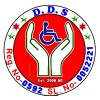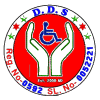DDS Free Computer Training Program
Empowering Disabled Individuals Through Digital Skills
The Disabled Development Society (DDS) is committed to bridging the digital divide for persons with disabilities by offering Free Computer Training programs. In today’s fast-paced, technology-driven world, computer literacy is essential for education, employment, and social inclusion. DDS aims to equip disabled individuals with the skills necessary to thrive in this digital era, promoting independence and economic empowerment.
Program Objectives
- Provide accessible and tailored computer training to persons with disabilities.
- Enhance digital literacy to improve employment and income-generation opportunities.
- Foster confidence in using technology for communication, education, and daily tasks.
- Promote inclusive access to modern information and communication technologies.
Training Components
- Basic computer skills: using hardware, operating systems, and common software (e.g., word processing, spreadsheets).
- Internet usage: browsing, email, social media, and online safety.
- Specialized software training: screen readers for the visually impaired, speech-to-text tools, and other assistive technologies.
- Digital communication: video conferencing, online job applications, and virtual collaboration.
- Practical exercises and project work to build real-world skills.
Target Participants
- Disabled youth and adults seeking to improve employability.
- Women with disabilities aiming for greater economic participation.
- Students with disabilities needing technology skills for education.
- Caregivers and family members supporting disabled persons.
Methodology
Training sessions are conducted in fully accessible computer labs equipped with assistive devices. DDS instructors provide personalized support, and training schedules are flexible to accommodate different needs. Online refresher courses and mentoring are also offered to ensure continuous learning.
Impact
- Graduates have secured jobs in offices, call centers, and online freelancing.
- Many participants use computer skills to manage personal businesses or engage in e-commerce.
- Increased digital inclusion has empowered beneficiaries to connect socially and access online services independently.

